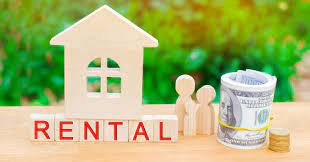One of the most important aspects of determining the value of a rental property is the average monthly rental income. To figure this out, research the average rental income in your target neighborhood. Rental income should be enough to cover mortgage payments, taxes, and other expenses. Also, rental income should be high enough to cover any increase in taxes. Otherwise, the property may not be worth investing in. Once you know the rental income, it is easy to find out if the rental income is high enough.
If you’re unsure about how much to charge for rent, use the “one percent rule” to help you estimate your potential rental income. This rule recommends that monthly rent should be one percent of the purchase price, or at least $3,000 per month. If the property is in a high-risk neighborhood, however, it might not be worth investing in. You should also consider the costs associated with owning rental properties. Among them are mortgage payments, property taxes, homeowner’s association fees, and marketing expenses.
Rent is the lifeblood of any landlord, so it’s vital to consider the potential rental income in your target area. Although a small profit may seem insignificant, it can add up to a substantial amount over time. If you find a low-rent area, you may be setting yourself up for future bankruptcy. Another important consideration is the tax rate in your target area. You must also consider insurance costs, which are an expense to deduct from your returns. Rents usually rise by 3% to five percent a year, so insurance costs will increase.
Rental properties are worth the investment if they’re properly managed. While you’ll be responsible for maintenance and repairs, rental properties can provide long-term financial security. It’s possible to quit your day job and live on this passive income. Be sure to work with a licensed real estate agent and a professional property management company. It is crucial to understand that running a rental property is a lot of work. Remember to factor in homeowners’ association fees, utilities, cleaning, and advertising costs.
Having a tenant can cause problems as well. While most tenants take care of their rental properties, they may not be the best choice. It is important to ensure that your tenants take reasonable care of your property and alert you to any major conditions that arise. Tenants sometimes disappear in the middle of the night, without forwarding information. If this happens, you may have to deal with a messy property that isn’t safe for rental.
A loan is another important factor when buying a rental property. The interest rate on investment properties is typically higher than on the mortgage for a traditional home. Make sure you shop around and find a lender that offers reasonable interest rates. Be prepared to make a substantial down payment as well as other home buying expenses. Finally, landlord insurance can protect you from many risks associated with rental properties. Different from homeowner insurance, landlord insurance covers damages to the rental property and helps you with liability protection.
